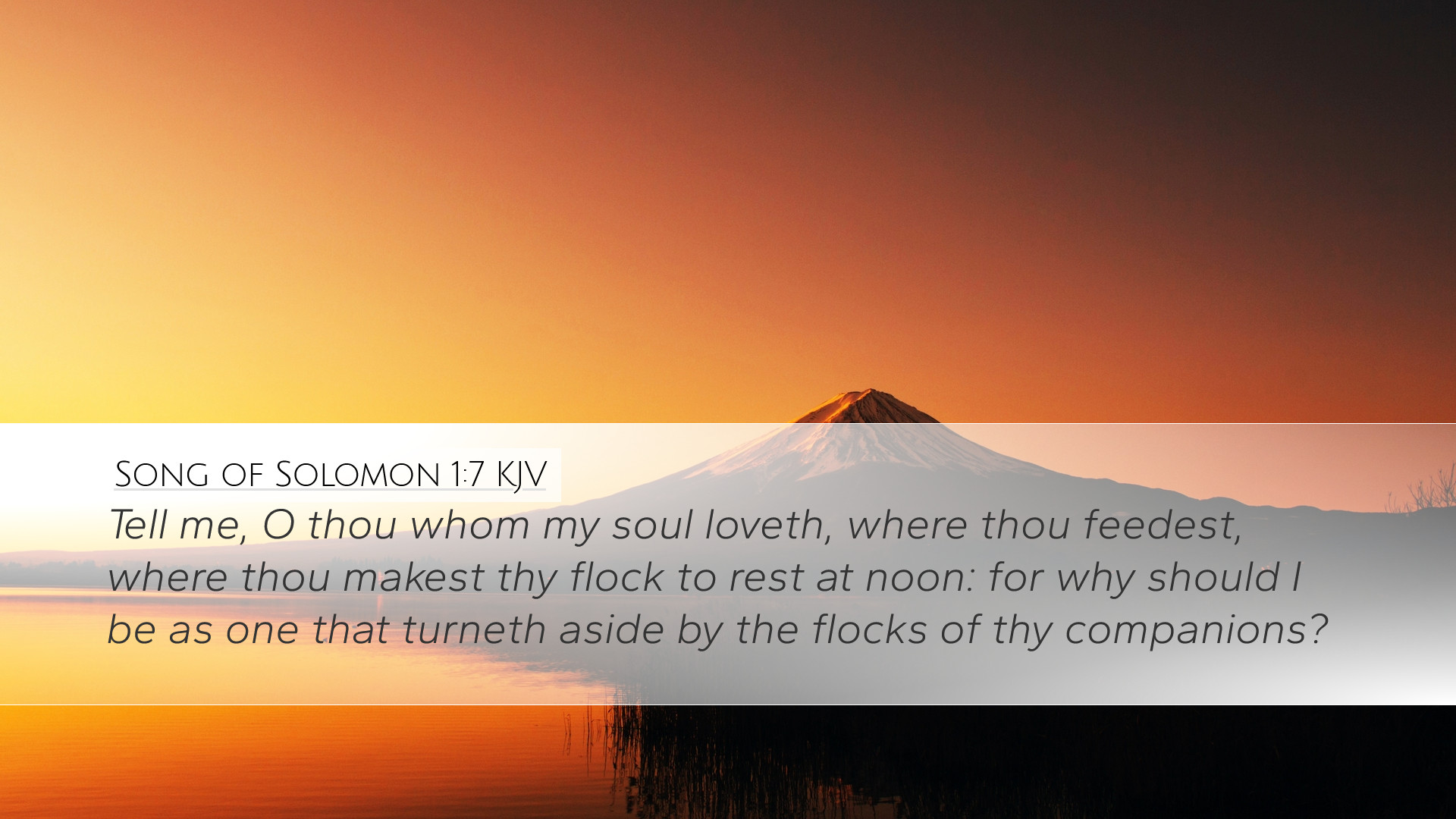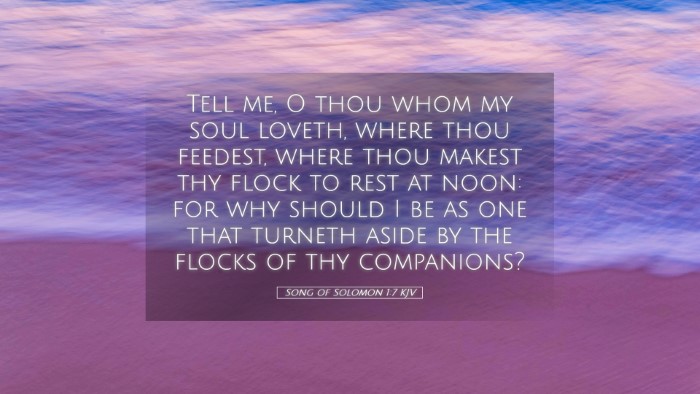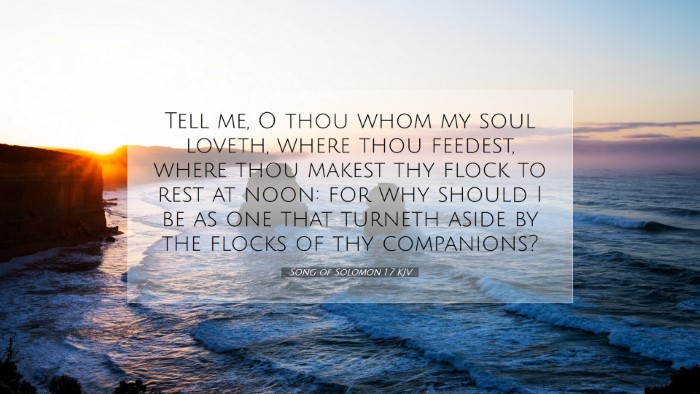Commentary on Song of Solomon 1:7
The verse "Tell me, O thou whom my soul loveth, where thou feedest, where thou
makest thy flock to rest at noon: for why should I be as one that turneth aside
by the flocks of thy companions?" (Song of Solomon 1:7) opens a dialogue rich in
imagery and deeper meaning. This poetic text expresses longing and desire,
encapsulating the passionate pursuit of love, both divine and human. In this
commentary, we will explore key insights from esteemed public domain commentators
including Matthew Henry, Albert Barnes, and Adam Clarke.
Contextual Background
The Song of Solomon is believed to be a celebratory poem reflecting the love
between the bride and her groom, often interpreted as an allegory of the love
between Christ and the Church. Understanding the cultural context is crucial
to appreciating the nuances of this verse.
Matthew Henry's Insights
According to Matthew Henry, this verse reveals the deep yearning of the bride
for her beloved. He articulates that the speaker's inquiry signifies a soul
that finds true satisfaction not in earthly pursuits but in the presence of
her beloved:
-
Desire for Guidance: The bride seeks direction, indicative of
a desire to be closer to her beloved. This reflects spiritual longing—
a longing for God's guidance in the believer's life.
-
The Symbolism of Feeding: Feeding represents nourishment
and care. This not only pertains to physical sustenance but also spiritual
welfare, highlighting how Christ tends to His flock and cares for their souls.
Albert Barnes' Reflections
Albert Barnes puts forth a commentary that emphasizes the romantic and
divine undertones of the text. His interpretation suggests:
-
Longing and Seeking: The bride's question reflects a
heartfelt pursuit of intimacy. The inquiry "where thou feedest" indicates
that the speaker desires not only to know her beloved's location but also
to be involved in his life, highlighting the grasp of one’s spiritual
relationship with God.
-
Companionship with the Flocks: Barnes suggests that the
flocks represent the following or the congregation. The challenge posed is
whether one’s love will lead them to separate from similar experiences
of companionship; an important consideration in both human relationships
and in one’s walk with God.
Adam Clarke's Interpretation
Adam Clarke offers a perspective that integrates both the literal and the
metaphorical significance of the passage. He notes:
-
Question of Location: The question "where thou feedest"
is central. Clarke insists that it carries an implication of searching for
a genuine place of worship and community, which resonates with the
believer's quest for authentic spiritual experiences.
-
Caution Against Distraction: The emphasis on "why
should I be as one that turneth aside" signifies the importance of focus
in one’s spiritual journey, cautioning against distractions from
less fruitful pursuits that do not lead one toward the divine.
Theological Implications
The theological implications of Song of Solomon 1:7 extend into various
aspects of Christian thought and life:
-
Intimacy with God: The quest for closeness mirrors
the believer's call to seek out a relationship with God, as indicated
by the parameters of feeding and resting.
-
Community and Fellowship: The verse serves as a call
to remain engaged with communities that nurture one’s spiritual
growth, emphasizing the need for collective worship and support.
-
Spiritual Discernment: Understanding when to refrain
from pursuing distractions represents a significant aspect of spiritual
maturity, advising believers to hone their discernment in their
pursuits.
Application for Pastors, Students, and Theologians
Reflecting on Song of Solomon 1:7 offers valuable lessons for
pastors, students, and theologians:
-
Pastoral Care: This verse can guide pastoral care,
emphasizing the importance of guiding congregants toward their
spiritual well-being and fulfillment.
-
Theological Education: Students and scholars may
delve into motifs of love and longing found in this passage,
enriching their understanding of biblical literature within the
broader narrative of redemption.
-
Personal Application: Individuals are encouraged to
reflect on their own spiritual journeys, seeking a deeper
engagement with Christ as the true source of nourishment.
Conclusion
Song of Solomon 1:7 invites readers to explore the depths of spiritual
longing and love. It serves as a rich text, blending romantic imagery
with profound theological insights. The reflections from Matthew Henry,
Albert Barnes, and Adam Clarke allow us to appreciate the beauty and
complexity of the Scriptures, encouraging a more profound quest for
the divine in our lives.


